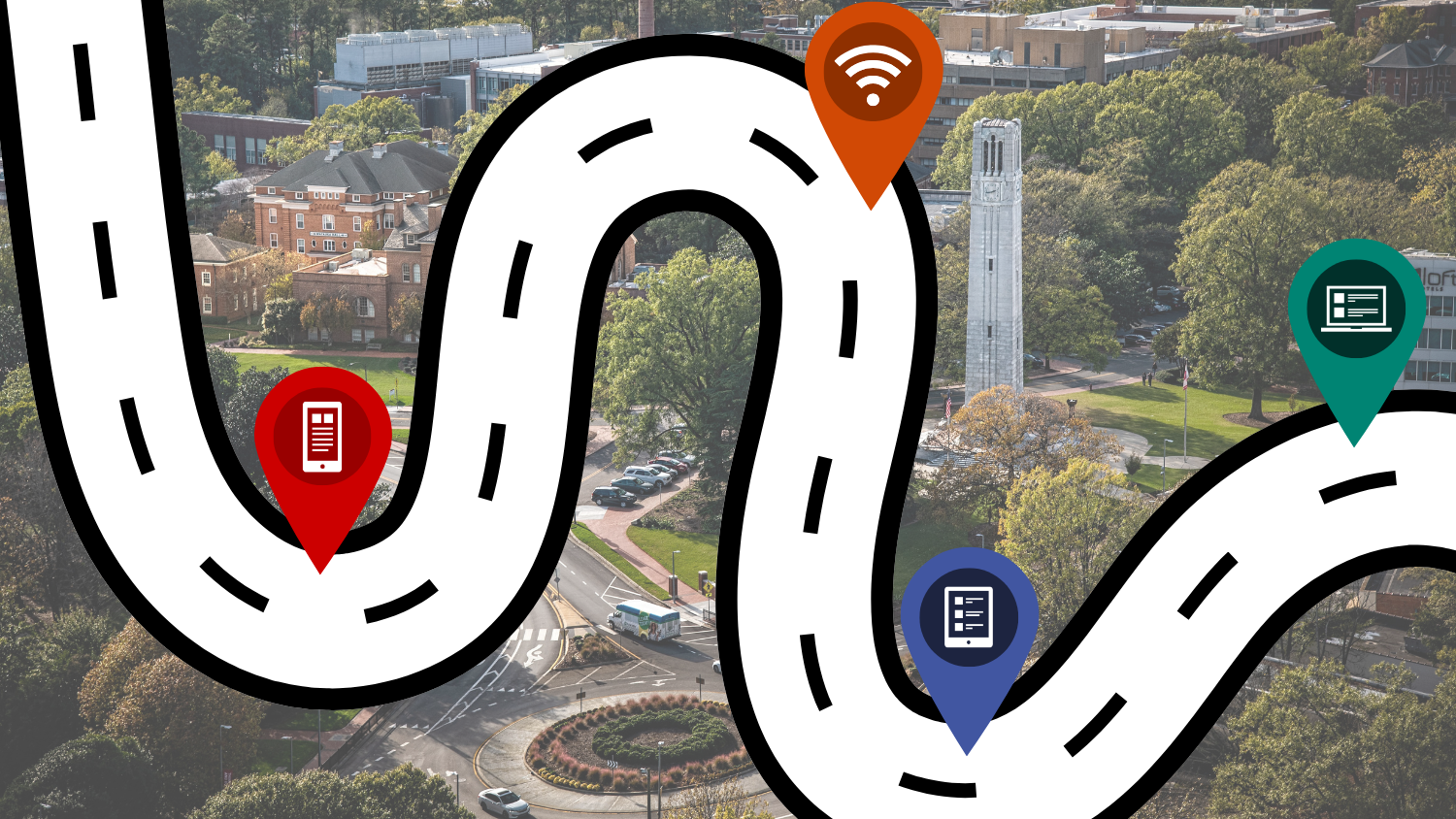Safe Travels: Tips to Secure Your Tech

As the spring semester closes and summer rolls in, you may be busy fine-tuning your upcoming travel plans. Don’t forget to add tech prep to your to-do list.
According to a survey from All About Cookies, more than one-third of international travelers have had a smart device lost or stolen while traveling abroad.
No matter the destination, consider these tips to keep your devices safe and your data private while away from home:
Before You Leave
- Do you really need a phone, laptop and tablet? Limit the number of devices you bring to reduce the chance they are lost or stolen.
- Be sure devices require a strong passphrase, PIN or fingerprint scan to unlock.
- Enable multifactor authentication on devices in case your credentials are compromised. Download the Duo Mobile app to securely authenticate with university resources.
- Install updates to your devices’ operating systems, antivirus software and apps. These updates protect against bugs and vulnerabilities.
- Back up your devices to ensure you can recover your data if a device goes missing.
While Traveling
- Use caution with public Wi-Fi. Although convenient, using public Wi-Fi in airports, hotels and restaurants puts your information at risk. Activities such as online shopping and banking are especially risky.
- If you do connect to public Wi-Fi, always use a virtual private network (VPN) to keep your connection secure. For university business, faculty and staff should use the NC State VPN.
- Turn off bluetooth when not in use to avoid accidentally connecting to or sharing data with unknown devices.
- While public USB charging stations may be a welcome sight when your battery is low, only charge devices using an AC power outlet. Cybercriminals can use USB ports to install malware on your devices or access your data.
- Never let a stranger borrow your phone. Criminals can take advantage of your kindness by stealing money or data from your devices or even locking you out of your accounts.
In Case of Loss or Theft
- Enable device-finding functionality on your devices to help find them if lost or stolen. You can even delete data remotely to keep it out of the wrong hands. Learn how to manage these settings for Android or Apple devices.
- Report any lost or stolen university-owned devices to your local IT immediately.
If you have questions, contact the NC State Help Desk via the NC State IT Service Portal or call 919.515.HELP (4357).
- Categories:


